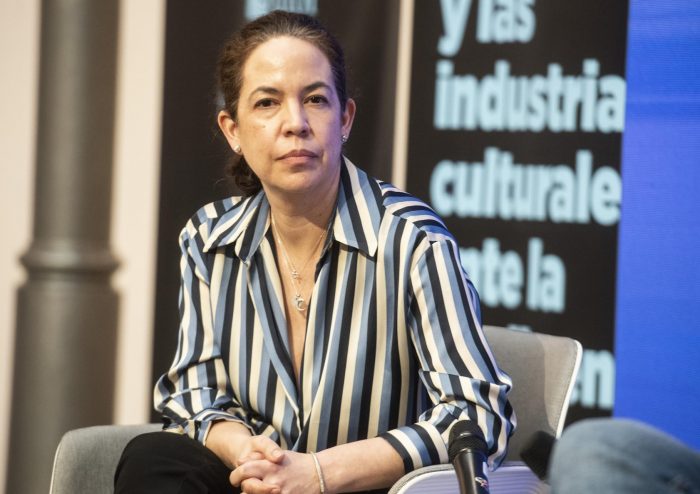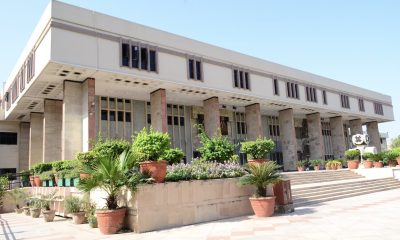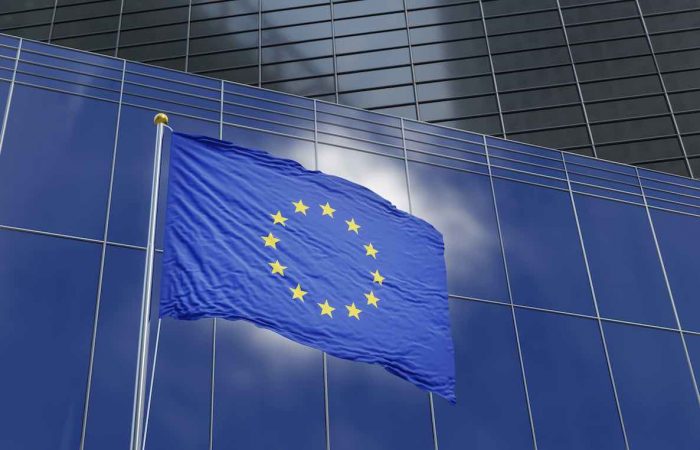Copyright & Regulation
Indian organisations representing owners of sound recordings and performers sign ‘historic agreement’ on music rights

Copyright & Regulation
Cristina Perpiñá-Robert (SGAE): ‘Creators want to embrace AI, but have deep fears about their own future in the age of AI’

In this opinion piece, Cristina Perpiñá-Robert, CEO of Spanish rights society SGAE, reflects on the development of AI-generated music and the threats and opportunities it represents for creators.

In the last two years several important studies have been published by creative industry organisations forecasting heavy losses to creators in a poorly-regulated AI environment. These are not aimed at standing in the way of the AI revolution — but they are an urgent alarm call to governments, asking them to stay true to culture and copyright at this critical moment in our sector’s history.
Music creators today want to embrace AI, not to stop new technology. But they also
have deep fears about their own future in the age of AI. These hopes and fears are reflected in a new study published earlier this month by SGAE in Spain. Our own
contribution to the debate not only provides insights into creators’ real views at the
coalface. It also forecasts even heavier potential losses in Spain, as GenAI tools
substitute for human creations.
Copyright and tech must work together
The tension between technology and the rights of creators goes back hundreds of years to the foundation of copyright itself. Copyright’s biggest milestones have generally been as a result of new tech. The Berne Convention of 1886 responded to inventions and new ways to exploit creative works — the birth of cinema, the first screenings by the Lumière brothers and the gramophone. The arrival of radio and television brought more changes in the law.
Later, the internet age brought the 1996 WIPO Copyright Treaty and introduced the protection of authors in the digital environment.
Each of these cycles saw a common pattern: technology advancing first, the law catching up after much debate, and, ultimately, a fragile balance between the two being restored between the two sides.
The disruptive leap of AI
Today, there is a new disruptive technology in town — artificial intelligence. Unlike its
antecedents, AI does not simply transform distribution or support the creative process. Generative AI intervenes directly in the act of creation. With a simple prompt, individuals with no artistic training can generate music, paintings, 3D designs, or even literary works.
AI does bring undeniable benefits. Assistive AI tools are already helping creators with editing, mastering and harmonies They are being used for promotion, giving authors more time for their art. Those functions are all great.
But the real challenge is that AI can generate entire works autonomously. And this raises profound questions:
> What qualifies as a protectable “work” under copyright law?
> How do we distinguish between human-authored works and machine-generated products?
> How do we safeguard the cultural and social role of creators when machines can imitate them?
Courts and policy-makers worldwide are grappling with these issues, amid a variety of different legal approaches. Europe, historically a champion of copyright, has “droit d’auteur” traditions that require human originality as a condition for protection. The UK, by contrast, recognises “computer-generated works,” but human oversight still remains implicit.
In the United States, the famous “Naruto- monkey selfie” case and recent Copyright Office decisions confirm that works generated entirely by non-humans are not eligible for protection.
The Spanish perspective: results of the SGAE study
Just a few short years ago, these dilemmas were theoretical. Not now. This year, SGAE has published a comprehensive survey showing what is already happening in the market. The Knowmedia Study on the economic and social impact of AI in music, commissioned by SGAE with Universidad Carlos III, surveyed 1,257 Spanish authors across genres and income levels.
Its findings show that:
> 34% of authors have already used AI tools, and another 17% plan to do so soon.
> 36% see AI as a creative ally, integrating it into their workflow.
> The risk is economic as well as cultural: AI could reduce music copyright revenues by up to 28% by 2028, a loss of around €100 million per year and €160–180 million over 2025–2028.
The study reflects a divided mood among creators. Some embrace AI for experimentation or technical tasks. Others fear that years of training and developing their art will be eroded, as anyone with basic tools can present themselves as a musician. Above all, many warn that AI in the future means replacement of the human rather than collaboration.
Recent events have reinforced these fears: AI-generated K-pop avatars like Eternity, or
Spanish groups such as Las Nenas are entirely artificial acts with songs distributed by
established record labels. Platforms like Suno, Ozone, and DALL·E accelerate this trend, with creators already seeing artificial music displace them in advertising and background tracks. Only live music still feels safe — though even that is questioned after spectacles like ‘ABBA Voyage’.
The need for regulation
The study’s conclusion is clear and it is an unambiguous call from the creators participating in the survey: AI must be regulated to respect authors’ rights and ensure transparency.
This means following three key principles:
> First, understanding the fundamental distinction between AI-assisted works that support creativity and fully autonomous AI works, which are substitutional and should not enjoy the same protection;
> Second, transparency is a pre-requisite, so that audiences know whether content is AI-generated; and
> Third, cultural diversity must be safeguarded: just as Europe and Spain have quotas to protect films or local language broadcasts, AI regulation in Europe should guarantee a minimum quota of human creativity.
This is not about resisting technology, but instead ensuring that technological progress
does not erase the human voices that give culture meaning.
A call to action
History shows that every technological revolution requires new institutions to protect society’s cultural fabric. The Industrial Revolution created welfare systems and labor
protections. The digital age brought new copyright treaties. Now, in the age of AI, we
must create legal and cultural frameworks to preserve human creativity.
The lesson is clear: technology will not stop, but neither should our defence of culture. If unregulated, AI risks colonizing our cultural space, substituting authentic human expression with algorithmic products. If regulated wisely, it can remain a tool in the hands of creators rather than their replacement.
Human creativity is not only a source of income. It is the voice of society, the resonance that connects us as communities. To protect it is not nostalgia — it is to defend the very essence of culture.
By Cristina Perpiñá-Robert
Copyright & Regulation
European Commission sets February 6, 2026 as the new deadline to rule on the proposed acquisition of Downtown by UMG
Copyright & Regulation
Swiss Assembly’s Committee refers bill on neighbouring rights for news content back to the Federal Council to include AI provisions
-

 Collective Management Organisations3 years ago
Collective Management Organisations3 years agoThe MLC plans webinars to show members how to use tools to manage song data
-

 Collective Management Organisations4 years ago
Collective Management Organisations4 years agoCécile Rap-Veber (SACEM): ‘We are a solutions provider to create value, a tech company, and we are less and less seen as some sort of cultural institution’
-

 Interview4 years ago
Interview4 years agoOlivier Chastan (Iconoclast): ‘Name, image and likeness will be as important as music rights in the future’
-

 Collective Management Organisations4 years ago
Collective Management Organisations4 years agoAndrea C Martin (PRS for Music): ‘In 2022, we will have higher revenues and we will pay out more royalties to our members’














